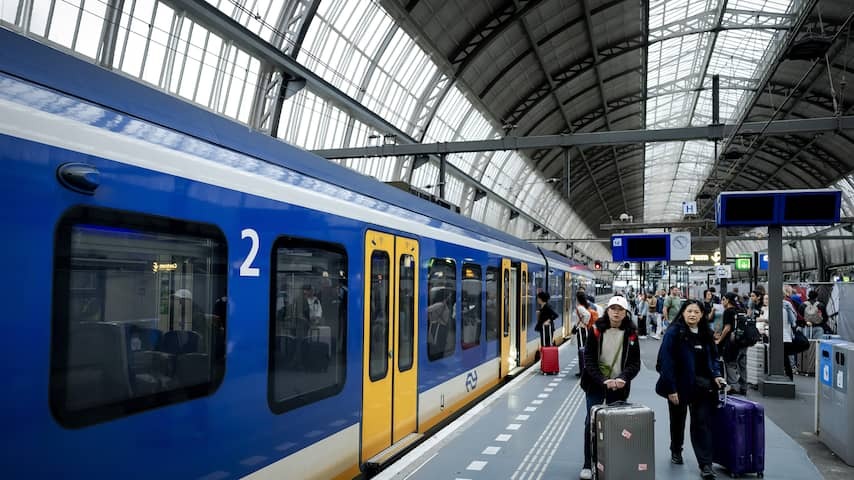
Experts are very emphatic: no, the network here is certainly not worse than in our neighboring countries Germany and Belgium. In fact, the so-called train punctuality in the Netherlands is almost unmatched anywhere in Europe.
Pieter Vansteenwegen, professor of public transport at the Catholic University in Leuven, even calls the Netherlands an example for other countries. “The trains here run considerably more punctually than in other countries.”
Purely based on the figures, the Netherlands seems to be doing just as well as other countries, with punctuality at 89.5 percent in 2024. In Belgium, for example, punctuality of 89.7 percent was achieved. But the criteria differ greatly. The most important difference, according to Vansteenwegen, is that in Belgium, the delay of the train is looked at, while in the Netherlands, it is looked at how often travelers arrive at their destination on time.
“It is much more interesting to measure traveler punctuality,” says Vansteenwegen. “After all, that is the purpose of the train system: that you as a traveler arrive on time.”
Belgian system not watertight
The professor gives an example. “Suppose I travel from Leuven to Mons via Brussels, and I arrive ten minutes late in Brussels-South. As a traveler, you are then delayed, which means you may miss a connection at that station. But Brussels-South is an intermediate station.”
The delay you experience there as a traveler is not included in the train punctuality. Because only the delay at the end of the line, for example in Ostend, is taken into account. Ostend is a city on the coast of Belgium and is considered the final station.
Suppose the train makes up half of the ten-minute delay and eventually arrives in Ostend with a five-minute delay, that does not count as a train delay for Belgium. The train is then still within the margin of 6 minutes. But as a traveler, you may have missed your connection at Brussels-South in the meantime. And thus arrive in Mons with fifteen or thirty minutes of delay.
In the Netherlands, in addition to traveler punctuality, train punctuality is also measured. That is much better in the Netherlands than in Belgium. With a norm of 5 minutes, 93.7 percent of the trains were on time last year. Belgium applies the less strict norm of 6 minutes and only achieves 89.7 percent.
Train delay has greater consequences in the Netherlands
The fact that the Netherlands, with those considerably stricter criteria, comes out at the same percentage as the surrounding countries says a lot about how reliable our network is. But it is also extra important in our country that the trains run on time. “We have a dense network here with many trains,” says Rob Goverde, professor of Railway Traffic Management at TU Delft. “If something goes wrong, it immediately has a lot of impact, because it quickly affects other trains.” A reliable network is therefore necessary to prevent a domino effect on our full track.
Readers of NU.nl find that there has been a lot of work on the track lately. What about that? “In the Netherlands and also in Germany, overdue maintenance on the infrastructure has been made up for in recent years,” Goverde explains. Travelers notice that. Maintenance is now done more during the day, while in the past it was done more at night. Goverde: “The fact that you see that happening so much now indicates that it is necessary.”
That is also evident on Thursday from new figures from ProRail. The service registered 302 serious disruptions in the first half of this year. More than 38 percent of them are caused by technical malfunctions to, for example, overhead lines and switches. ProRail is trying to reduce that number with targeted maintenance. The failure due to serious disruptions is not included in the delay figures.
In Germany, that lack of maintenance also causes considerable delays. At Deutsche Bahn, only 62.5 percent of long-distance trains were on time last year. According to Vansteenwegen, the rail company “is increasingly dealing with failing trains and problems on the track.” Like the Netherlands, Deutsche Bahn is catching up with maintenance. “But that cannot be solved in five years.”